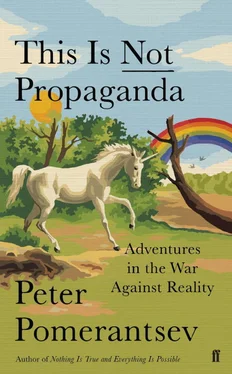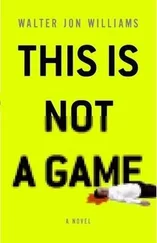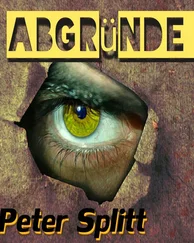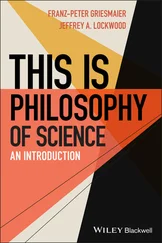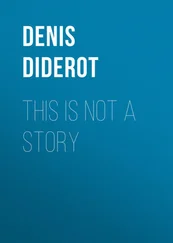Igor’s own writing moved away from first-person impressionism: the unmitigated ‘I’ had begun to feel self-indulgent without the heavy breath of authoritarianism bearing down on him. Instead, he drew on anthropology, zoology, ways of reimagining and redefining groups, identities, interconnections. Viticulture, winemaking, became an incessant theme, a tradition that travelled across and transformed continents. A glass of wine had magical properties, could transport you in time and space. In a story from July 1991 the first person is almost entirely absent. The tale is based on a meteorological dictionary of winds. He’s talking about freedom, but there’s little mention of himself, just detailed descriptions of gales, breezes, gusts, breaths.
On 21 August 1991 Igor woke to find that a putsch had broken out in Moscow. The head of the KGB, the army, the prime minister and the deputy president had announced a state of emergency. Gorbachev, they claimed, was unwell in his country house in the Crimea and too ill to serve the country any longer. They were taking power and planned to save the Soviet Union.
Soviet television was showing Swan Lake on a loop, so people turned to the Western ‘voices’ in even greater numbers. On Radio Liberty Boris Yeltsin, the president of the largest Soviet republic, Russia, called the state of emergency a coup, asking for crowds to come to the centre of Moscow, with hundreds of thousands forming a human shield to defend the Russian parliament from the tanks and KGB battalions that had been pulled into the middle of the city.
In Crimea, Gorbachev, who wasn’t sick at all, had been placed under house arrest by the coup plotters and had all his communications cut. The only thing he had left was a battery-powered radio. He and his staff gathered around it, wiggling the antenna to get good reception, tuning desperately into the foreign ‘voices’. On Radio Liberty British prime minister Margaret Thatcher exhorted her friend Mikhail to hold on. This was Igor’s work. He had spent the night trying to persuade Downing Street to let him interview the prime minister. They told him repeatedly she didn’t give interviews like this. ‘This isn’t about just politics,’ Igor told them. ‘Her personal friend Mikhail is in danger. Has she nothing to say to him?’ That worked.
The coup failed. Within a year the Soviet Union itself was gone. The map on our kitchen wall began to change. Fifteen new countries were created in one go. The colours on the map I had grown up with, a globe shaded into two blocks, started to mix like a messy palette. The geography of identity that I had grown up with – ‘there’, ‘here’, ‘them’, ‘us’ – no longer made sense.
Our personal geography was shifting too. In 1992 Igor was transferred to the central bureau of RFE in Munich, Germany, to sit with the language sections of dozens of other now former Communist bloc countries, housed in a building that looked like a medieval fortress, with high, thick walls covered in spikes and with even higher security – the legacy of an attempt to blow it up by the Stasi-sponsored Venezuelan terrorist Carlos the Jackal in 1981. In the corridors and cellars of that fortress Igor was delighted to discover vast, forgotten cabinets containing reels of the great émigré writers who had worked at Radio Liberty over the last forty years. He was becoming ever more enamoured of the power of radio to create new worlds, to blend past and present, here and there into something strange and new:
‘Drama, dramatic effect is born on radio when sounds collide, rub noses, give each other a slap. Radio language is wider, richer, more full-bodied than any spoken tongue. With it you can convey ageing, the approach of madness, dying.’
He and his producers travelled everywhere with their audio recorders, picking up noises to be used in programmes: the crunching of an apple made one think of snow in winter; a dingo howling in a zoo was yearning love.
*
One is perhaps not very aware in childhood that one is part of vast experiments in the culture, the mindset, the language that make politics possible. While Igor worked for a station that symbolised American support for a Europe that was, as the US president said in 1989, ‘whole and free’, I was sent to a special school created to change the political psychology of the continent.
Munich was home to one of nine European Schools, which were created by the founders of the European Union (then the EEC) to forge a new, ‘European’ model of identity. Under the foundation stone of each school lay the mission statement, allegedly written by Jean Monnet, the creator of the EEC, himself:
Without ceasing to look to their own lands with love and pride, they will become in mind Europeans, schooled and ready to complete and consolidate the work of their fathers before them, to bring into being a united and thriving Europe.
Primarily intended for the children of the EU’s multinational civil servants, the schools were also open to anyone who could get in via a lottery and an exam. Indeed, the dream of their founders had been that they would become a model for all education in the Union.
Every morning our headmaster, Herr Hoyem, a former Danish minister for Greenland, would greet us at the entrance of the school, which was built in the shape of a star, in honour of the stars on the European flag. The architects had forgotten to include EU-regulation fire escapes, and the building was later encased in a metal exoskeleton of stairs and walkways; at first glance it looked like scaffolding, as if the school was under permanent construction. The school was split into different language sections – English, French, German, Italian and so on – with history and geography taught in a foreign language and from that country’s point of view. When the first school had opened in 1953, less than a decade after the end of the Second World War, it must have been a stunning idea for French children to be taught history in German from a German perspective – and vice versa.
The kids in the English section had been in Germany so long their connection to the UK was tenuous. Fresh from London, I was in some ways the most English person there. This was novel. Back in London I had been known as ‘the Russian’. Now I was suddenly a representative of England.
The children of the European School played up to the caricatures of their homelands. The French were moody; the boys read graphic novels and the girls dressed beautifully. The Italians were appalled by the food and seemed to take to multilingualism badly. The Germans were the jocks. We in the English section, the boys anyway, posed as eccentrics: we quoted Monty Python and made a point of eating Marmite. At playtime we would teach our Italian counterparts cricket, not because we had any passion for it, but simply because as the ‘English’ that’s what we felt we ought to do to identify ourselves.
I was taught history and geography in French. For me this was less a case of sink or swim, more simply sinking and having to survive by breathing underwater. Overwhelmed in my first months I gradually began to grow linguistic gills, could make out the dim outlines of glowing underwater kingdoms: the St Bartholomew’s Day massacre, Versailles, Napoleon. But this Napoleon was different to the one I knew. In England I had learnt that he was a villain. For the French he was a star of democracy promotion, not a despot. I ended up with two Napoleons: one English and one underwater.
I became amphibian. I joined the other pupils in the aula, where conversations would start in German and flow into French and then English; or everyone would speak their own language but understand everyone else’s. I remember looking across the aula at an English classmate once and momentarily not recognising him because, when speaking German, he shed his camp grimaces and laughed like a Bavarian, slow and macho. So, on the one hand, national traits were more pronounced as we defined ourselves against one another in the playground rituals; but they were also less fixed, something you could put on and take off again, not ‘you’. It was an existence I found quietly ecstatic. After an immigrant, bilingual, awkward childhood – knowing I wasn’t English like the majority around me, but not quite sure what I was – here was a system that celebrated stepping outside of and outstripping one’s identity, the one thing I was actually quite good at. This was what ‘European’ meant: not some superimposed identity, but the ability to wear identity lightly, to be able to wriggle outside of one and inside another.
Читать дальше
